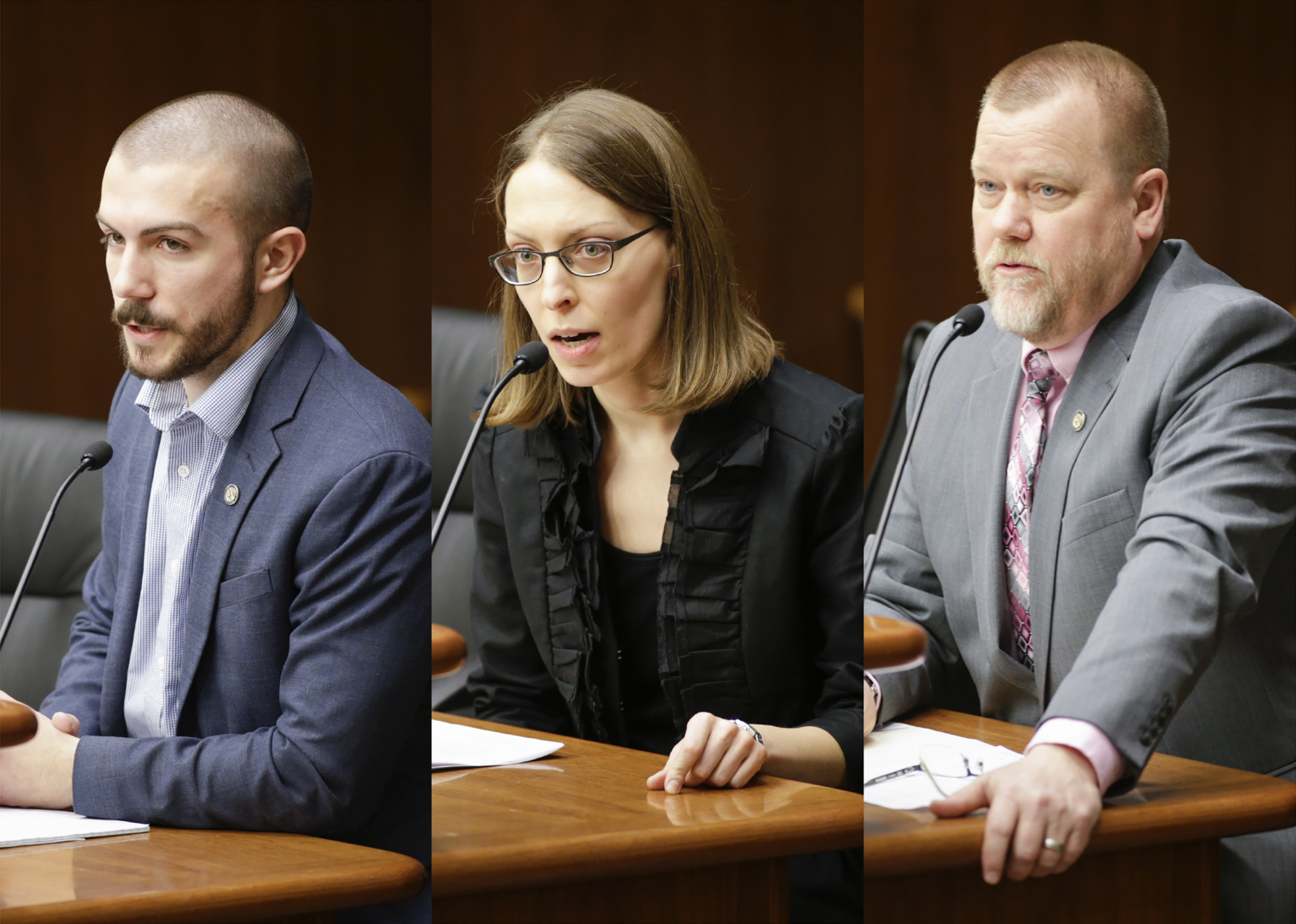How the state taxes Social Security benefits would change under three bills

How much should Social Security benefits be taxed by the state — if at all? Three bills laid over by the House Taxes Committee Thursday take varied views on the question.
To be considered for inclusion in the omnibus tax bill, they seek changes that range from relatively minor – a $150 to $300 increase in the maximum subtraction for Social Security benefits — to eliminating taxes on Social Security benefits altogether.
The word “scalable” came up periodically among sponsors introducing their bills to the committee, and that was a clear nod to the negotiating process that might keep most of a bill’s language but alter the percentages of taxable benefits and the income levels at which new rates would be triggered.
A 2017 law created an additional Minnesota subtraction for a portion of taxable Social Security benefits, on top of the federal subtraction. HF883, sponsored by Rep. Hunter Cantrell (DFL-Savage), would increase the maximum state subtraction by $300 for those married filing jointly or $150 for all other filers.
The Department of Revenue estimates that it would result in an average reduction in tax for 249,300 tax returns of about $15, and a reduction in state revenue of $3.8 million for Fiscal Year 2020. The bill has no Senate companion.
HF885, sponsored by Rep. Ami Wazlawik (DFL-White Bear Township), would allow a taxpayer to subtract the full amount of their taxable Social Security benefits – to a point. The subtraction would start phasing out at an income of $110,000 for those married filing jointly and $80,000 for single taxpayers.
The Revenue Department estimates that 254,800 tax returns would be affected, with an average tax reduction of $707, and that it would cost the state $180.2 million in revenue for Fiscal Year 2020. The bill has no Senate companion.
One bill that wouldn’t be “scalable” is HF56.
Rep. Tony Jurgens (R-Cottage Grove) believes the state should simply do away with taxing Social Security benefits. His bill would strike a line through six paragraphs of Minnesota law, reducing the language to one sentence to allow a taxpayer to subtract the full amount of their taxable Social Security benefits.
Jurgens pointed out that Minnesota is one of 13 states that taxes Social Security benefits. The bill’s companion is SF245, sponsored by Sen. Michael Goggin (R-Red Wing). It awaits action by the Senate Taxes Committee.
According to Department of Revenue estimates, about 357,600 tax returns would receive an average tax reduction of $1,070. The cost to the state coffers would be $382.6 million in Fiscal Year 2020, gradually rising to $459.8 million in Fiscal Year 2023.
And that’s the part that troubled Mary Jo George, associate state director of advocacy for the Minnesota chapter of the American Association of Retired Persons. She wrote a letter to the committee expressing concern that HF56 “would not leave the state with adequate state resources to fund the very programs seniors need as they age.”
Public pension benefits may also get their own subtraction
Another bill laid over for possible inclusion in the omnibus tax bill – HF866, sponsored by Rep. Diane Loeffler (DFL-Mpls) – deals with another kind of subtraction: pension income for public employees who did not receive Social Security benefits, allowing state subtraction levels almost identical to those for Social Security benefits.
These include recipients of select pension plans for retired State Patrol, teachers and other public employees. Chris Parsons, president of Minnesota Professional Fire Fighters, said career firefighters are among those who do not receive Social Security and would be aided by the change in tax law.
Discussion ensued over the inclusion of a retirement plan for legislators, with the committee chair, Rep. Paul Marquart (DFL-Dilworth), expressing concern about including that in the bill. But Loeffler assured him that the pension plan was closed and only served legislators who retired prior to 1996.
A companion, SF151, is sponsored by Sen. Kari Dziedzic (DFL-Mpls). It awaits action by the Senate Taxes Committee.
Related Articles
Search Session Daily
Advanced Search OptionsPriority Dailies
Ways and Means Committee OKs proposed $512 million supplemental budget on party-line vote
By Mike Cook Meeting more needs or fiscal irresponsibility is one way to sum up the differences among the two parties on a supplemental spending package a year after a $72 billion state budg...
Meeting more needs or fiscal irresponsibility is one way to sum up the differences among the two parties on a supplemental spending package a year after a $72 billion state budg...
Minnesota’s projected budget surplus balloons to $3.7 billion, but fiscal pressure still looms
By Rob Hubbard Just as Minnesota has experienced a warmer winter than usual, so has the state’s budget outlook warmed over the past few months.
On Thursday, Minnesota Management and Budget...
Just as Minnesota has experienced a warmer winter than usual, so has the state’s budget outlook warmed over the past few months.
On Thursday, Minnesota Management and Budget...